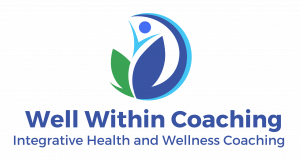New Health (or Mental Health) Diagnosis? 7 Ideas for What to Do Next
If you have a chronic health condition, it’s likely you’ve already been through enough just managing the effects of your condition.
Receiving a new diagnosis for a health condition can feel scary, overwhelming, upsetting, and even out of control, but it doesn’t have to stay that way.
Taking ownership and responsibility for your own wellbeing can have positive consequences, and significantly impact the process of recovery.
If you’re open to being a full participant in your own healing, try one or more of these seven steps:
1) Reframe your symptoms
For sure, when we are stressed and overwhelmed, it can feel easier to avoid dealing with symptoms. But what if you thought about them in a different way. What we typically call “symptoms”, are the subtle and not-so-subtle messages from your system that something requires your attention. Experiment by thinking of them as communication; messengers from your body-mind system, letting you know that something needs to be attended to in a different way. Be open and curious to learn more about what they are “saying.”
2) Meditation or other formal relaxation practices
Receiving a new diagnosis and the process of learning about what it means, can activate alarm bells in our innate threat-detection system. Our brain and body are one inextricably linked entity. Your nervous system has a direct impact on your health and immunity. Explore mindfulness mediation, breath practices, yoga nidra/NSDR, guided imagery, tai chi, or HeartMath. Activating the parasympathetic nervous system, or relaxation response, rather than remining in a sympathetic or stress response, is most conducive to health and healing.
3) Journal
Committing to a health and recovery journey can be nerve-wracking to say the least. (Read more about my own experience here) You may have complex testing regimens or treatment protocols to follow. You may be adjusting to a new dietary pattern, implementing new lifestyle habits, or traveling to meet with specialists. This can be exhausting and overwhelming to keep up with. Writing in a notebook or journal can help release your thoughts and emotions, which can help with sleep, concentration and worry.
4) Share with at least one trusted friend or loved-one
Being diagnosed with a chronic health condition can elicit feelings and experiences of shame, stigma, confusion, and isolation just to name a few. It’s not uncommon to feel somehow at fault (you’re not) or like you no longer belong (you do.) There can be a natural tendency to turn away from others – and from yourself – when you feel this way. However, shame and isolation only serve to exacerbate the current state of your body-mind system, and can undermine the healing process.
5) Find practitioners who you like and who treat you with respect
I always encourage clients and friends to consider working with a highly qualified functional medicine doctor. Functional medicine (along with integrative or lifestyle medicine) may yield more nuanced and personalized information about your health status, and a more empowering approach to treatment. A perspective that seeks to understand the underlying root cause of your condition, and recognizes how all systems are interconnected may be most useful. (Do not discontinue or change any treatment process without first consulting your medical provider.)
6) Work with a Health and Wellness Coach
Similar to #4, you don’t have to go it alone. Managing change, uncertainty, and excess stress can leave you feeling depleted and stuck. Furthermore, if there was ever a time to get serious about self-care and holistic wellbeing, it’s now. Dial in lifestyle habits, routines and mindsets to support your wellbeing. Not in lieu of, in addition to medical interventions. A holistic Wellness and Lifestyle coach offers support, encouragement, and can help you address the interrelated impact on mind, body, spirit, emotions, relationships, environment, career and beyond.
7) Connect to your values
Whether courage, faith, persistence, peace, surrender, trust or determination, your values can help ground you in your ‘why.’ Having a sense of clarity, along with greater meaning and purpose, can enable you to stick with your protocols and practices when the journey becomes challenging or gets old. Suffering is a part of the human condition, but it’s only one part. Many people live a vibrant, whole, happy, full, content life while managing a chronic condition. And so can you.
If your head is spinning from all the new information since receiving your diagnosis and you’re not sure where to turn, reach out for your FREE Clarity Call.
Disclaimer: This post is for informational purposes only. It does not constitute medical advice, or replace treatment or intervention by a qualified medical or mental health professional. Do not make any changes to your health protocols without consulting with your healthcare provider.





